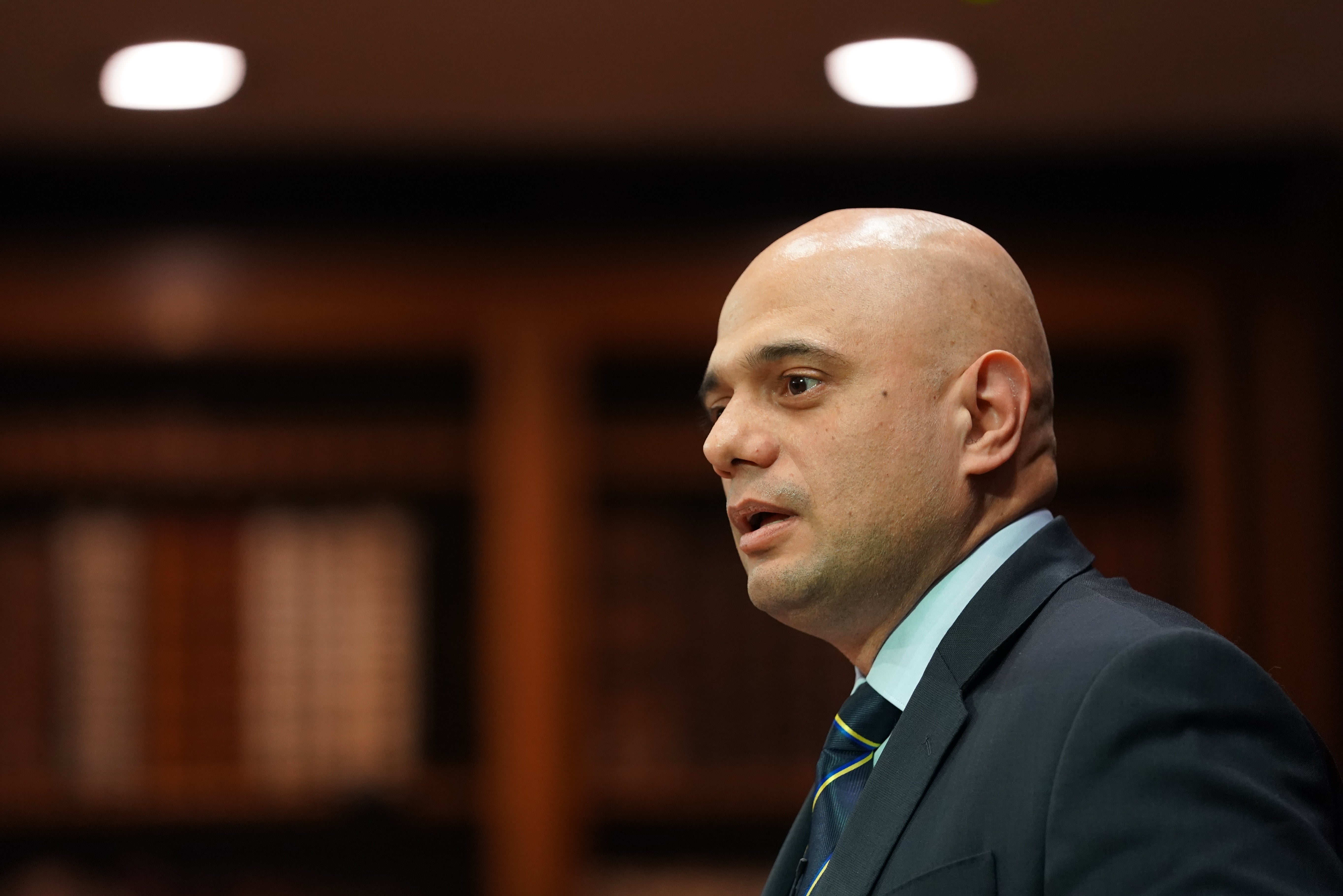Javid says UK has sent more medical supplies to Ukraine than any other country
During a speech at the Royal College of Physicians, Sajid Javid answered questions about how the UK is helping to support Ukrainians.

Your support helps us to tell the story
From reproductive rights to climate change to Big Tech, The Independent is on the ground when the story is developing. Whether it's investigating the financials of Elon Musk's pro-Trump PAC or producing our latest documentary, 'The A Word', which shines a light on the American women fighting for reproductive rights, we know how important it is to parse out the facts from the messaging.
At such a critical moment in US history, we need reporters on the ground. Your donation allows us to keep sending journalists to speak to both sides of the story.
The Independent is trusted by Americans across the entire political spectrum. And unlike many other quality news outlets, we choose not to lock Americans out of our reporting and analysis with paywalls. We believe quality journalism should be available to everyone, paid for by those who can afford it.
Your support makes all the difference.Sajid Javid said the UK has sent more medical supplies and equipment to Ukraine than any other country.
During a speech at the Royal College of Physicians in London on Tuesday, the Health Secretary set out his vision for how the NHS health service will evolve to cope with rising challenges.
But Mr Javid also touched upon the situation in Ukraine, saying the UK’s sixth shipment of supplies left for Ukraine on Tuesday morning.
He also revealed that the Government is “looking at options” to provide acute life-saving care to refugees, especially children.
He said: “This morning at 7am, our sixth flight left and I think, from what we’re told, we have done more in terms of medical supplies, medical equipment than any other country at this point and of course we will continue to do whatever we can and help in that way.
“In terms of those who might need emergency healthcare, we are looking what we can do with our partners in the bordering countries, providing medical support in maybe Poland or Moldova on the ground because often that is what is going to make the biggest difference rather than trying to fly someone thousands of miles.
“But where there is a need for acute life-saving care, I don’t want to say too much at this point, but we are looking at options, working again with our European partners and our partners working with the Foreign Office on this and looking at what we can do.
“And we will absolutely be playing our part in that, especially when it comes to the children.”
Asked about the progress made on NHS Trusts cutting ties with Gazprom and Russian energy, he said: “I don’t have the exact number of trusts that are exposed because there are some that have direct exposure to Gazprom – and those we know – but there are others that might have indirect second-order exposure so we have asked for all that information.
“And we have asked all trusts to end their relationship as soon as they can.
“It’s not possible for trusts to just turn off the gas that works, obviously for very important reasons, but all trusts have responded very well to that.
“They all absolutely get it and all the trusts are working towards doing that and we are providing the support for doing that.”
During his speech, Mr Javid also said: “The Prime Minister and every part of this government will be working closely with the Ukrainian government to establish what they need and we stand ready to help them in every way we can.
I’m so proud of these efforts and of all the people who have rallied around all the Ukrainians working for us in the NHS and in social care – a reminder of the incredible diversity of our workforce.”
Mr Javid also spoke about his plans for reforming the NHS and health sector.
Under the plans, patients will be urged to use the NHS app to manage their health.
Health chiefs hope people will use their phones to book appointments, communicate with their surgery, see test results and get advice to manage their health and wellbeing.
The NHS will also publish a digital health plan later in the spring, which will include rolling out more “virtual wards”, where patients can be monitored from their homes.
The new NHS reforms will also result in a near doubling in the number of people offered “personalised” healthcare, including the right to control the budgets spent on them for long-term conditions.
Personal budgets have been in place for years and can be used to pay for a wide range of services, such as therapy for depression, equipment for the home and help with personal care.
But an expansion in the scheme means more than four million people will now benefit from personalised care.
Mr Javid said: “Those are the long-term challenges the NHS must adapt to: changing demographics and disease; changing technology and expectations; and unsustainable finances.”